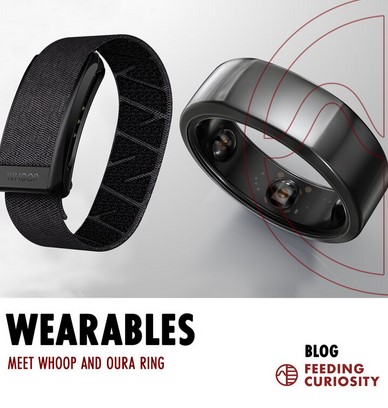 The battle of the wearable fitness trackers is on! Whoop and Oura are two of the most popular fitness trackers on the market today. Both offer a range of features to help you track your fitness progress and reach your goals. But which one is the best? In this article, we’ll compare Whoop and Oura to help you decide which one is right for you. We’ll look at their features, design, accuracy, and more. So, let’s get started and see who comes out on top in the battle of the wearable fitness trackers.
The battle of the wearable fitness trackers is on! Whoop and Oura are two of the most popular fitness trackers on the market today. Both offer a range of features to help you track your fitness progress and reach your goals. But which one is the best? In this article, we’ll compare Whoop and Oura to help you decide which one is right for you. We’ll look at their features, design, accuracy, and more. So, let’s get started and see who comes out on top in the battle of the wearable fitness trackers.
Whoop vs. Oura: A Comprehensive Comparison of Wearable Fitness Trackers
The fitness tracker market is a rapidly growing industry, with a variety of devices available to help users monitor their health and fitness. Two of the most popular devices are Whoop and Oura. Both of these wearables offer a range of features to help users track their activity, sleep, and overall health. In this article, we will compare Whoop and Oura to help you decide which device is best for you.
First, let’s look at the features offered by each device. Whoop offers a range of features, including heart rate monitoring, sleep tracking, and activity tracking. It also offers personalized coaching and recovery advice, as well as a community of users to connect with. Oura, on the other hand, offers a comprehensive suite of features, including activity tracking, sleep tracking, and heart rate monitoring. It also offers personalized insights and recommendations, as well as a community of users to connect with.
Next, let’s look at the accuracy of each device. Whoop is known for its accuracy in tracking heart rate and sleep, while Oura is known for its accuracy in tracking activity. Both devices offer a range of sensors to ensure accuracy, but Whoop’s sensors are more advanced and offer more detailed data.
Finally, let’s look at the battery life of each device. Whoop offers up to five days of battery life, while Oura offers up to seven days. Both devices offer a range of charging options, including wireless charging.
In conclusion, both Whoop and Oura offer a range of features to help users track their health and fitness. Whoop is known for its accuracy in tracking heart rate and sleep, while Oura is known for its accuracy in tracking activity. Whoop offers up to five days of battery life, while Oura offers up to seven days. Ultimately, the choice between Whoop and Oura will depend on your individual needs and preferences.
Whoop vs. Oura: Which Wearable Fitness Tracker is Right for You?
When it comes to choosing a wearable fitness tracker, two of the most popular options are Whoop and Oura. Both of these devices offer a range of features that can help you track your fitness goals and monitor your health. However, there are some key differences between the two that you should consider before making a purchase.
Whoop is a fitness tracker that focuses on providing detailed data about your body’s recovery and performance. It measures your heart rate, sleep, and activity levels, and provides personalized insights and recommendations based on your data. It also offers a range of features such as a personalized training plan, a recovery score, and a sleep score.
Oura, on the other hand, is a health and wellness tracker that focuses on providing insights into your overall health. It measures your heart rate, sleep, and activity levels, and provides personalized insights and recommendations based on your data. It also offers a range of features such as a personalized health plan, a readiness score, and a sleep score.
When deciding which device is right for you, it’s important to consider your individual needs and goals. If you’re looking for a device that can provide detailed data about your body’s performance and recovery, then Whoop may be the better choice. However, if you’re looking for a device that can provide insights into your overall health, then Oura may be the better option. Ultimately, the decision is up to you and what you need from a fitness tracker.The Whoop and Oura wearable fitness trackers are both excellent options for tracking your fitness and health. Both offer a variety of features and benefits, and both have their own unique advantages. Ultimately, the choice between the two comes down to personal preference and which features are most important to you. Both trackers are reliable and accurate, so whichever one you choose, you can be sure you’re getting a quality product.
